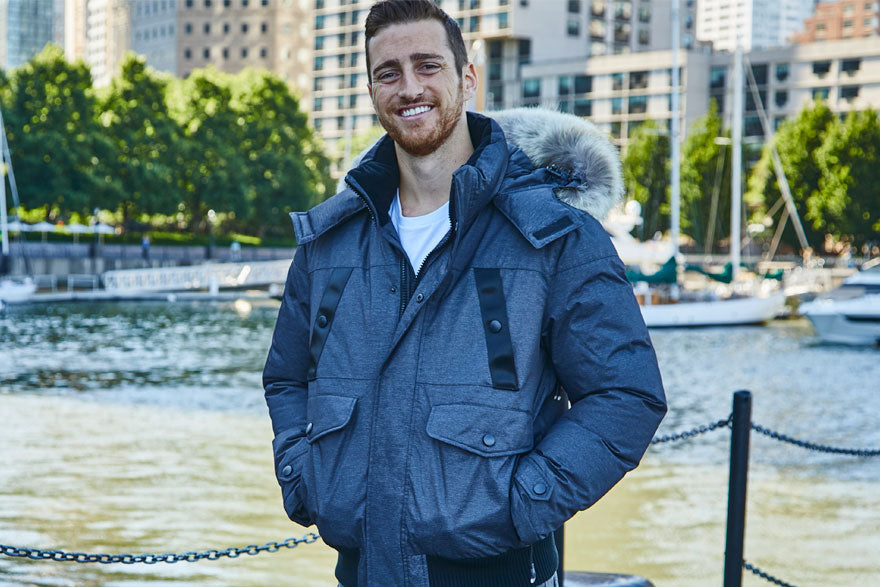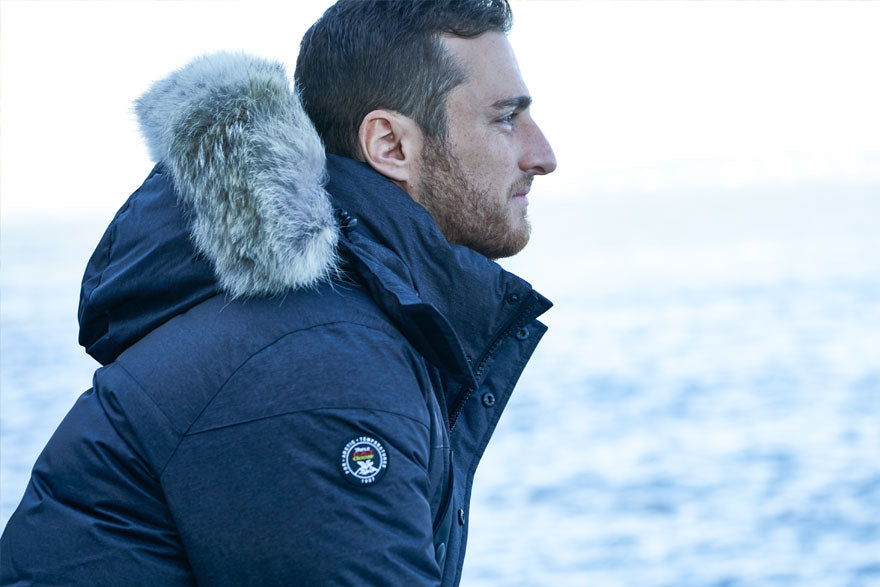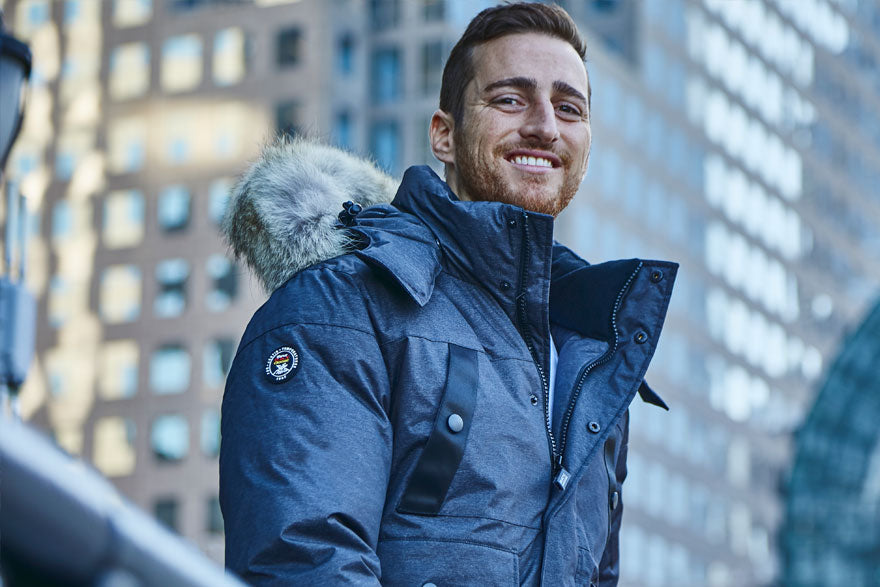Nature versus nurture. They’re usually competing notions, but when it comes to Justin and Matt Kamine they are symbiotic.
Growing up among animals and agriculture on a New Jersey family horse farm, the Kamine brothers have always had a strong connection to the natural world. Also, as the sons of an entrepreneur who developed countless successful business ventures under the banner Kamine Development Company (KDC), Kamine was born with an enterprising spirit.
Since graduating from Lafayette College with a degree in Environmental Business and Public Policy, and brother Matt with an Engineering they have combined an eco-consciousness and pioneering thinking to expand the family business’s environmental endeavors into KDC Ag, a division focused on environmentally sustainable investments and technologies.
With the company just winning the Prince of Monaco’s Clean Tech Equity Award and its young cofounder, Justin, recently named to Forbes’ 30 Under 30: Food & Drink list for 2018, Kamine took time out of his busy schedule to tell us how to save the planet.

GO NATURAL
The word natural has lost all meaning in terms of food labeling and marketing, but Kamine (seen here wearing the Triple F.A.T. Goose Norden in navy) believes the word will define how sustainable business should focus their efforts—that is take their cues directly from nature. The impetus for this theory came from a TED Talk Kamine heard delivered by Eben Beyer, co-founder of Ecovative, a biomaterials company that provides sustainable alternatives to plastics and polystyrene foams.
“Beyer discussed the power of mushrooms to be reverse engineered to create what looks and feels like Styrofoam,” Kamine remembers. “Of course, Styrofoam is not sustainable, but by using bio-mimicry to mimic nature to grow mushrooms in a sustainable way he could create a replacement that looks, feels and acts like Styrofoam—yet could compost in your garden.”
Inspired by Beyer’s work, the Kamine’s stopped looking for outside solutions to sustainability issues and instead began looking to nature to solve its own issues. “I believe that nature, through thousands of years of adaptation, survival and growth, has provided the world with many of the solutions to contemporary problems,” Kamine says. “It is just up to entrepreneurs and developers to figure out what it is and to scale it.”
As basic forms of this concept, Kamine points to how humans converted the power of wind and the heat from the sun to create energy that is sustainable and more eco-friendly than carbon-based energy production.
A more complex example is KDC Ag’s effort Kamine is spearheading to invest in and create a profitable infrastructure that will reduce food waste in the U.S.—a 150,000 tons a day problem.
“It is absolutely crazy that we throw away 40% of all of the food we grow. But what if we could maximize the usage of that food and its nutrients to grow more food with less inputs?” Kamine asks. “To this end, we essentially have patented the human digestive process—arguably the most efficient user of food to eliminate food waste—to create a palletizable animal feed and fertilizer the very next day.”
When you consider that food waste if it were a country is the third largest GHG emitter behind China and the U.S., the millions of gallons of oil and water used to produce uneaten food, land being farmed for food that goes into the trash and valuable nutrients being tossed, this endeavor could have a positive and far-reaching environmental impact. And the Kamine’s efforts don’t stop there.
“Our other company LoliWare uses seaweed to engineer a material that looks and feels like plastic; yet is a 100% hyper-compostable,” Kamine says. “This can now tackle the major problem of single use plastic straws and cups, with natural material that nature is providing us!”

MONETIZE IT
Someone once said, “Money makes the world go round.” It could also be said money might just be the thing that saves it if we can make eco-friendly products that are also cost-effective.
As evidence, you might remember when those energy saving light bulbs hit the market. They were crazy expensive and no one bought them. Then the price came down and they started popping up everywhere.
“At the end of the day in order to have the greatest impact in the world, you must first make it an economic decision, that is then also amazingly sustainable,” Kamine advises. “At KDC Ag we are proving that and operating at the large-scale infrastructure level to combine profits and sustainability in the macro markets.”
This means companies can make money for doing right by the planet and do so at a reasonable cost to customers. Or a Kamine’s puts it: “A true win for the consumers, win for us as a business and a win for the environment.”
DISRUPT THE NORM, NOT CONSUMERS
Habits impact the way consumers behave and what they buy. Research shows that given the time constraints, distractions and stress of everyday life, it takes a lot of convincing to change the way people go about their daily routine.
That’s why Kamine believes businesses must disrupt the entire traditional production process, from sourcing of raw materials to manufacturing to the supply chain, without unsettling consumers.
“In order to have a large scale impact we must also allow the consumers to continue to operate as usual,” Kamine explains. “If you could walk into Starbucks and get your coffee with a straw; yet that straw, despite looking and feeling like plastic, was biodegradable, you as a consumer would feel like a hero.”
And feeling like a hero is just the type of jolt that can energize a consumer to make a change the next time they have to choose between an eco-friendly option and their regular product that isn’t green. But going forward, Kamine hopes that industries can progress to the point where there’s only one choice: the sustainable option.
“The focus of KDC is to create products that are amazingly sustainable, but allow consumers to continue their actions without any disruption or large price increases,” Kamine says. “The result is a true combination of 21st century technology with profitable and timely businesses.”

DO A LITTLE EVERY DAY
Kamine and KDC Ag work on a national scale and hope to take it even bigger. Such a dynamic and far-reaching impact are beyond the scope of the regular person. This can make trying to enact any sort of positive impacts seem daunting and even impossible, but Kamine says that’s not the case.
“Being kind to our environment and the people around us is a key focus of my everyday life,” Kamine says. For example, at home, you can’t digest 160 tons of food waste in three hours like KDC Ag, but you can turn your own veggie cuttings, stale bread and coffee grounds into soil. “Composting is a great local solution and I am highly supportive of it,” Kamine says. “It is a great way for everyone to play their part.”
Kamine says that other small but important ways to make an impact is to be “better everyday with turning off your lights” or looking closer at how you approach your breakfast, lunch, and dinner.
Eating seasonally and locally can cut down on food transportation, which in turn lowers greenhouse gas emissions. “Also, try meal prepping to designate your meals for the week which will mean you waste much less since you try to use it all during the prep,” Kamine says. For those new to meal planning, he recommends @FreckledFoodie, a health coach and meal prepper that can teach you the basics.
While these seem like small drops in a much larger bucket, taken as a whole they can not only have a huge impact, but also have a much greater reach, like that straw he already mentioned from Starbucks.
“The power of a movement can occur rapidly, take for example plastic straws again,” Kamine notes. “People recognized that we use 500 million straws per day and with some grassroots movements and education, society saw this as a tragedy and started to change.”
And change is at the heart of everything Kamine and his family does and believes in. He says that the good news is disruption is taking place all over the world across multiple industries.
“I am a big believer that we all need to come together across sectors to drive major change,” Kamine advocates. “The best thing is to be open to change, and embrace it every day, and at the end of the day, as my partner Sam Kass claims “just do a little better”!“

